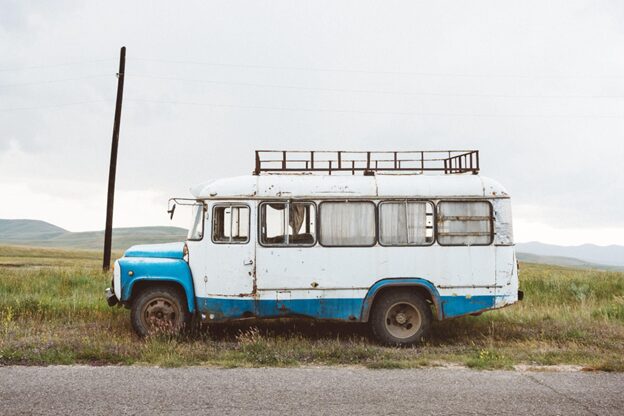
Colorado’s unpredictable weather can be brutal on recreational vehicles. High winds, hail, heavy snowfall, and flash flooding often leave RVs battered and broken beyond practical repair. When severe weather strikes, even a well-maintained rig can suffer structural damage, shattered windows, roof collapse, or water infiltration. While insurance may cover some costs, many owners find themselves stuck with a non-drivable, heavily damaged vehicle with little guidance on what to do next.
If you’re holding onto a storm-ravaged rig, you can turn that junk RV for cash in Colorado. The key lies in understanding your options, assessing your RV’s remaining value, and finding a buyer who specializes in damaged or non-operational vehicles. With the right approach, even a total loss can become a strategic exit.
Identifying Salvageable Components Before Listing the RV
A storm may cause significant damage, but not every part of the RV is beyond use. Begin with a visual and mechanical assessment of what remains intact. Look for functional components such as:
- The chassis or frame
- Air conditioning units or propane systems
- Electrical hookups or solar panels
- Interior fixtures like sinks, stoves, or cabinetry
- Doors, windows, or wheels that avoided impact
Photograph both damaged and usable sections. These images will help buyers determine whether the RV is suitable for parts, repair, or recycling. Make notes on what still works and highlight any upgrades or replacements that survived the storm. Transparency allows for quicker transactions and fairer pricing.
Finding Colorado Buyers Who Specialize in Damaged RVs
Not every dealer or buyer wants a vehicle with damage. Standard RV dealerships typically avoid rigs that require extensive repair or can’t pass inspection. Instead, search for businesses and individuals who handle scrap RVs, refurbish damaged units, or dismantle them for parts.
To sell a junk RV for cash in Colorado, prioritize regional buyers familiar with the state’s terrain and weather-related damage. These specialists often provide towing services, fast evaluations, and pay based on the condition of salvageable parts rather than appearance alone.
Online directories, salvage auto platforms, and classified ads filtered for Colorado zip codes can help you connect with serious buyers who storm-related issues will not deter.
Complying With Colorado’s Title and Disposal Regulations
Colorado has precise requirements for vehicle title transfers and disposal, especially when the vehicle is no longer roadworthy. Even a wrecked RV needs a proper title to be sold legally.
Ensure your title is free of liens and matches your name exactly. If the storm damage rendered the vehicle a total loss and insurance paid out, the title may have been branded as “salvage” or “junk.” That designation must be disclosed in the bill of sale. Failure to disclose the title status can cause legal delays or invalidate the sale.
In some cases, you’ll need to submit a Notice of Vehicle Sale to the Colorado Division of Motor Vehicles (DMV) to confirm the transfer. Choose buyers who understand and assist with these requirements to avoid incomplete transactions or penalties.
Calculating Fair Market Value in Post-Damage Condition
Once you’ve documented the storm damage and prepared your paperwork, it’s time to set expectations for value. Don’t rely on Kelley Blue Book or NADA values for retail RVs—they don’t account for severe damage. Instead, assess your RV based on its parts potential and scrap weight.
Storm-damaged RVs are typically valued according to:
- Current demand for parts specific to your model
- Recyclable material (steel, aluminum, copper wiring)
- Condition of the drivetrain and electrical systems
- Cost of towing and removal (if the buyer covers it)
Obtain multiple quotes from different buyers. Compare not just the price, but also the services offered, including pickup logistics, paperwork assistance, and payout methods. A slightly lower offer from a buyer who handles everything may be more convenient than a higher one with more responsibility on your end.
Preparing the RV for Pickup or Transfer
Although you’re selling a damaged vehicle, presentation still matters. Remove personal belongings, hazardous materials, and anything not included in the sale. If safe to do so, clean up shattered glass, loose parts, or debris from the interior. This creates a safer environment for both you and the buyer’s crew.
If the RV isn’t mobile, provide exact location details. Make sure access is clear for a tow truck or flatbed trailer. If possible, remove license plates and return them to the DMV to avoid future registration issues.
Include all keys, manuals, and service records, even if you believe the RV will be scrapped. These small details often increase a buyer’s confidence in the transaction and may slightly increase your offer.
Exploring Alternative Options Beyond Cash Buyers
In Colorado, communities and industries sometimes find creative uses for damaged RVs. If traditional buyers don’t offer satisfactory prices, consider these alternatives:
- Construction companies often use RV shells as job site trailers.
- Tiny home builders: The frames can be repurposed for off-grid projects.
- Trade schools: Damaged RVs are ideal for training in electrical, HVAC, or mechanical repairs.
- Artists or designers: Scrap RVs occasionally become set pieces or mobile exhibits.
These unconventional outlets may take longer to find, but they expand your options and could result in better compensation, or at least help avoid landfill disposal.
Making the Most of a Damaged RV in a Harsh Climate
Colorado’s unpredictable weather can turn a functioning RV into a damaged shell in hours. When repair isn’t realistic, knowing how to convert that storm-wrecked vehicle into cash can ease the burden and prevent ongoing costs, such as storage or fines.
With proper planning, detailed documentation, and the right buyer, even a heavily damaged RV can retain its residual value. Salvageable parts, recyclable metals, and functional systems create demand, especially when paired with local expertise and legal preparation. Turning your junk RV into a cash opportunity isn’t just possible—it’s practical with the proper steps.



